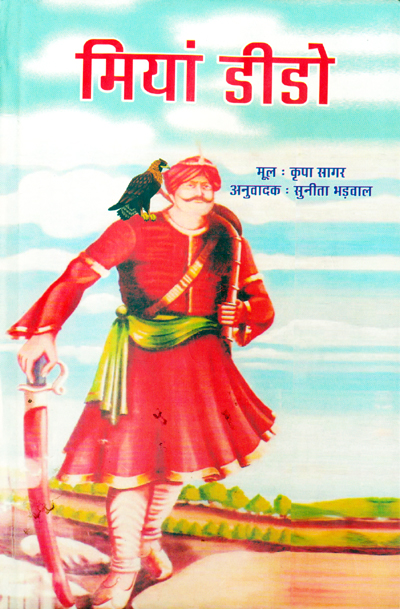Lalit Gupta
Name of the Book : Dido Jamwal
Original Writer in
Punjabi : Kripa Sagar
Hindi Translator : Sunita Bhadwal
Publisher : Nidhi Publication, Jammu
Price : Rs 350/-
At the juncture when there is pressing need for translation of modern Dogri literature into other Indian languages and English, Sunita Bhadwal’s Hindi translation of Kirpa Sagar’s 1934 Punjabi play Dido Jamwal, is certainly a welcome effort that enables more visibility to the saga of peerless Dogra folk hero Mian Dido in the Hindi speaking world.
Importance of the play ‘Dido Jamwal’ in Punjabi lies in the fact that it was first modern literary work on Dogra folk hero that was written in early part of 20th century by Kripa Sagar, a Punjabi who in the year 1915 was posted in Jammu as an employee of State Government.
Kirpa Sagar (1875-1939), a poet, was also teacher, editor, banker, and officer of the University of Punjab and publisher, who ran his own publishing press from Ram Gali, Lahore. His major works include Lakshmi Devi (which is interwoven with Maharaja Ranjit Singh’s conquest of the hill provinces of Bandral-now Ramnagar), ‘Maharaja Ranjit Singh’ (published in 1934 from Lahore) of which ‘Dido Jamwal’ is the third part.
Inspired by Dogri translation of Kirpa Sagar’s original play in Punjabi by Yash Nirmal, Sunita Bhadwal’s competent Hindi translation titled ‘Dido Jamwal’, the second avatar of the original work by Kirpa Sagar, has been possible only due to translator’s facility in three languages: Punjabi, Dogri and Hindi.
A short story writer, poet, critic and translator, she being a creative writer has successfully selected and used appropriate equivalents of words, idioms and proverbs in such a way in her translation that they look original to the reader of the target language (Hindi).
Sunita Bhadwal’s ‘Dido Jamwal’ with faithful portrayal of the parade of historic characters has opened an opportunity for staging a full-fledged drama on the life and times of Mina Dido for large segment of non-Dogra audiences and providing them an insight into the politico- social climate of 19th century Duggar as well as the fierce sense of liberty that informs the character of chivalrous Dogras for whom justice and honesty are cherished life-values.


